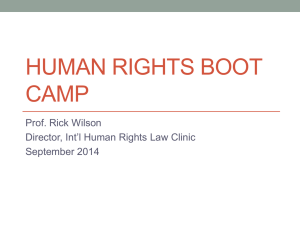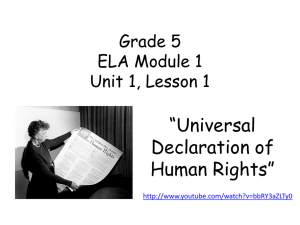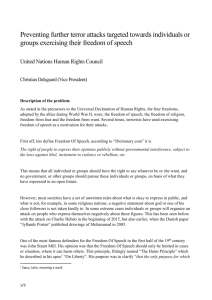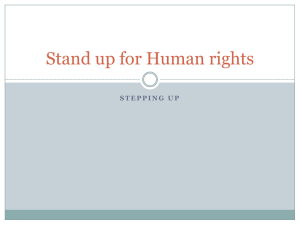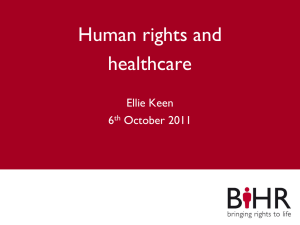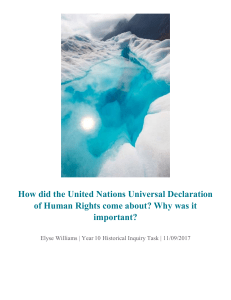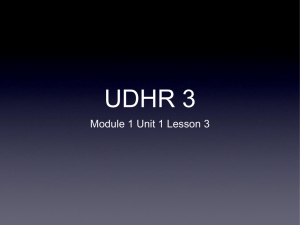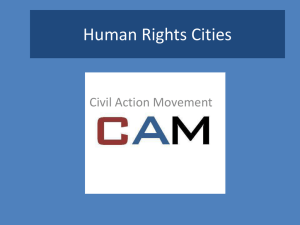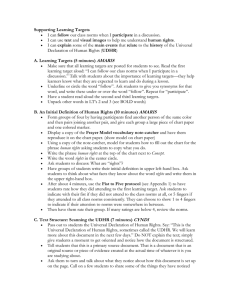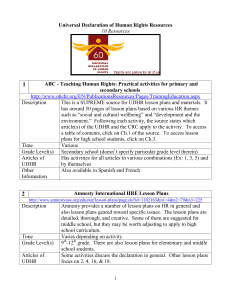General Assembly
advertisement
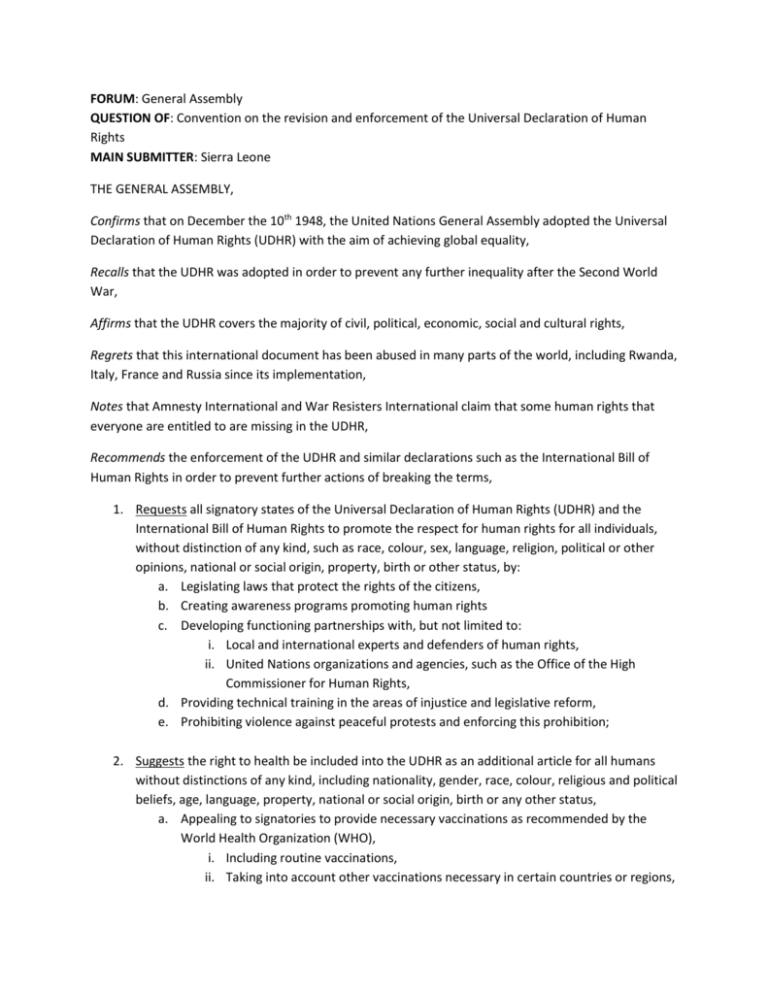
FORUM: General Assembly QUESTION OF: Convention on the revision and enforcement of the Universal Declaration of Human Rights MAIN SUBMITTER: Sierra Leone THE GENERAL ASSEMBLY, Confirms that on December the 10th 1948, the United Nations General Assembly adopted the Universal Declaration of Human Rights (UDHR) with the aim of achieving global equality, Recalls that the UDHR was adopted in order to prevent any further inequality after the Second World War, Affirms that the UDHR covers the majority of civil, political, economic, social and cultural rights, Regrets that this international document has been abused in many parts of the world, including Rwanda, Italy, France and Russia since its implementation, Notes that Amnesty International and War Resisters International claim that some human rights that everyone are entitled to are missing in the UDHR, Recommends the enforcement of the UDHR and similar declarations such as the International Bill of Human Rights in order to prevent further actions of breaking the terms, 1. Requests all signatory states of the Universal Declaration of Human Rights (UDHR) and the International Bill of Human Rights to promote the respect for human rights for all individuals, without distinction of any kind, such as race, colour, sex, language, religion, political or other opinions, national or social origin, property, birth or other status, by: a. Legislating laws that protect the rights of the citizens, b. Creating awareness programs promoting human rights c. Developing functioning partnerships with, but not limited to: i. Local and international experts and defenders of human rights, ii. United Nations organizations and agencies, such as the Office of the High Commissioner for Human Rights, d. Providing technical training in the areas of injustice and legislative reform, e. Prohibiting violence against peaceful protests and enforcing this prohibition; 2. Suggests the right to health be included into the UDHR as an additional article for all humans without distinctions of any kind, including nationality, gender, race, colour, religious and political beliefs, age, language, property, national or social origin, birth or any other status, a. Appealing to signatories to provide necessary vaccinations as recommended by the World Health Organization (WHO), i. Including routine vaccinations, ii. Taking into account other vaccinations necessary in certain countries or regions, b. Designating the countries classified by the Human Development Index (HDI) as “Very High Human Development” to donate a small percentage of their Gross Domestic Product (GDP), which is defined by the United Nations (UN), to the countries classified as “Low Human Development” on the HDI under supervision of the UN, i. Limiting the financial aid to be spent under UN supervision for health care, education and social security only, ii. Encouraging the UN to take the responsibility for the aforementioned supervisions and its fair distribution, c. Urging signatory countries to use all resources at their dispositions in order to ensure adequate health care and sanitation facilities as well as providing clean water for their citizens; 3. Promotes the right to food security to be included in the UDHR as a separate Article for all humans without distinctions of any kind, including nationality, gender, race, color, religious and political beliefs, age, language, property, national or social origin, birth or any other status; 4. Encourages the monitoring of human rights for all citizens without distinction of any kind, such as race, color, sex, language, religion, political or other opinions, national or social origin, property, birth or other status, by: a. Identifying human rights violations and ameliorating responses, b. Conducting research concerning the implementation of human rights in all countries; 5. Calls for the abolition of the death penalty, torture, and other inhuman treatment of LGBT persons as a first step to decriminalization of non-traditional sexual orientation, with the assistance of the Security Council to consider economic sanctions against dissident member nations; 6. Asks the United Nations and all signatory states of the UDHR and of the International Bill of Human Rights to implement punitive measures, should violations occur, by: a. Condemning the violation, b. Ensuring that evidence proving the violation exists, c. Determining the punishment according to the severity of the violation, i. Taking into consideration the national laws of the respective countries for violations against individuals and small groups, ii. Calling upon governments to report human rights violations affecting more than 50 individuals to the United Nations Human Rights Council; iii. Imposing sanctions in the Security Council, if appropriate; 7. Proposes to add an article concerning the right to refuse to kill to the UDHR for all persons without distinctions of any kind, including nationality, gender, race, color, religious and political beliefs, age, language, property, national or social origin, birth or any other status, in order to ensure that men and women that are at the appropriate age for military service can object conscientiously, 8. Recommends an agreement between the UDHR and the Cairo Declaration of Human Rights in Islam in order to find common ground in dealing with the special requests merging from different UN member states, any disagreement between the two declarations shall be considered on a case-by-case basis by the Human Rights Panel; 9. Urges all member states to ensure that all individuals have the right to terminate their employment by their own choice and not be arbitrarily bound to their employer, and the right to form unions protecting labor rights and against instances of abusive termination of employment; 10. Further recommends that the Committee on Economic, Social and Cultural Rights (CESCR) extend its mandate to include assessing member nations’ compliance with the Universal Declaration of Human Rights.

